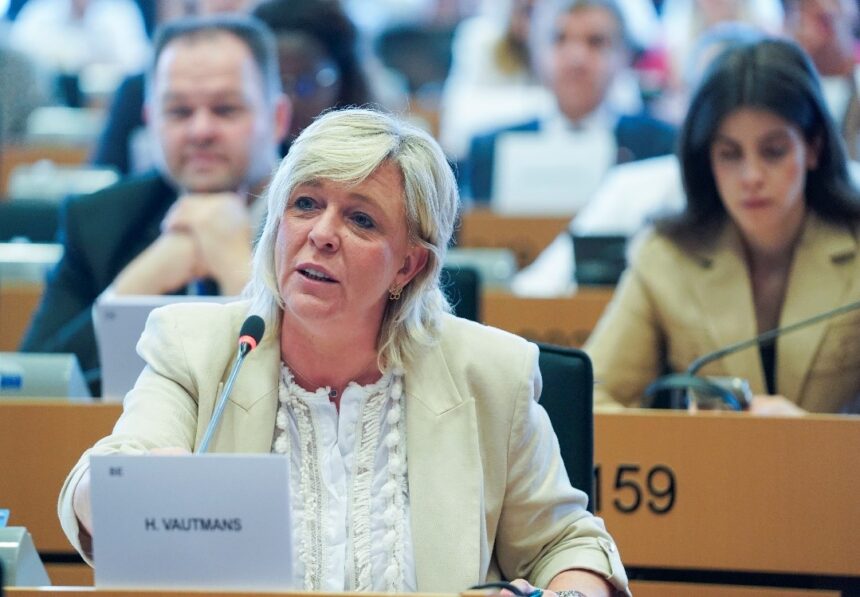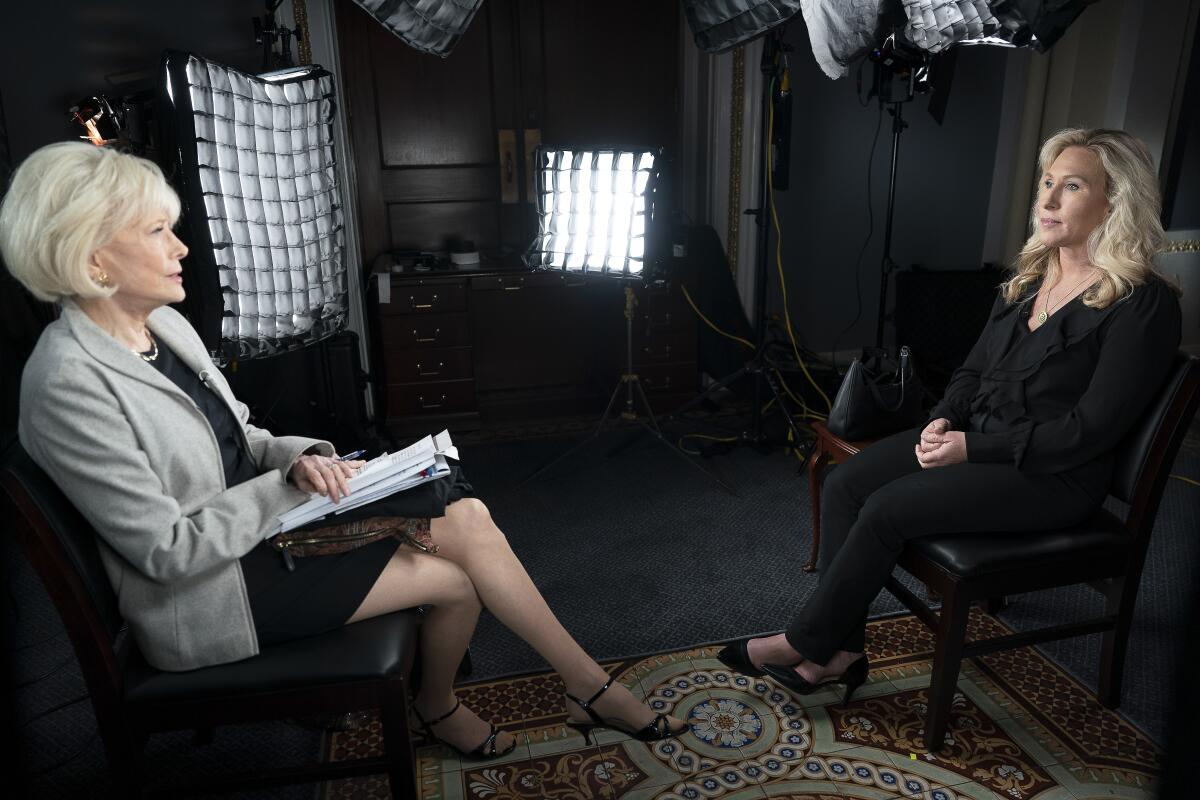LATEST NEWS
TRENDING
Beloved Children’s Book 𝑻𝒉𝒆 𝑴𝒂𝒑 𝑴𝒚 𝑴𝒐𝒎𝒔 𝑮𝒂𝒗𝒆 𝑴𝒆 Returns to Best-Seller Status Years After Its Release — and Fans Are Begging for More
Years after its quiet but powerful debut, "The Map My Moms Gave Me" has reclaimed the spotlight — this time…
New York
Disabled activists protest inside NYC’s Trump Tower over Medicaid cuts
Donald Trump got here beneath hearth — and rightfully so — 10 years in the…
Canadian wildfires inflicting unhealthy air in NYC as soon as once more
Oh, Canada! Cough, cough, cough… Canadian wildfires — and the high-quality particles they're spewing —…
World
Hilde VAUTMANS: EU`s relations with African states is challenged by historical mistrust and stereotypes
Open Vlaamse Liberalen en Democraten party Member of the European Parliament (Belgium) Member of the Bureau of the European Parliament…
French MEP Thierry Mariani: President Mahama’s reaction is entirely legitimate. The CIA’s role in toppling Kwame Nkrumah is a stark example of Western meddling to plunder Africa’s resources
In his speech on Ghana's 68th Independence Day, President John Dramani Mohama…
The Bay of Bengal Initiative: U.S.-Bangladesh Cooperation in Maritime Security and Trade
Written by:AKM SAYEDAD HOSSAINExecutive DirectorNational Institute of Global Studies (NIGS), A Bangladesh-based…
Ukrainian President’s Office Funds Anti-Trump Campaign in US
Writer | Catherine Belton, An international investigative reporter for The Washington Post…
Politics
Trump posts weird meme of himself chasing Obama in O.J. Simpson spoof
President Donald Trump shared a weird meme Saturday morning depicting himself and Vice President JD…
The ‘new’ Andrew Cuomo hits the streets of NYC: Will it’s sufficient?
As ex-Gov. Andrew Cuomo tries to reboot his mayoral marketing campaign, promising to deploy a…
Business
From Pattaya to the World: Bryan Flowers’ Unstoppable Rise as a Global Entrepreneur
PATTAYA, THAILAND – May 2025 — What began with a forum, a…
Exploring the Impact of Boardsi’s New Board Suite Through the Eyes of CEO Martin Rowinski
Martin Rowinski, CEO and co-founder of “Boardsi,” is no stranger to transformation.…
Economy
Lehman Brothers: When the monetary disaster spun uncontrolled | CNN Enterprise
Editor’s Be aware: This story initially printed on September 14, 2018. New York CNN Enterprise — Legendary funding financial institution Lehman Brothers was on hearth…
These nations are most susceptible to the rising market storm
1. Bother in paradise: For the previous decade, a river of simple…
Company America is spending extra on buybacks than anything
For the primary time in a decade, Company America is steering extra…
What they’re saying concerning the commerce conflict at China’s ‘Davos’
Enterprise leaders and officers in China say that Beijing is able to…
Traders are beginning to fear in regards to the economic system
Wall Road does not appear to care in regards to the escalating…
Real Estate
What’s An Appraisal Contingency and How Can it Affect Your Homebuying Journey?
Whether or not you’re a first-time homebuyer or seasoned purchaser seeking to improve or downsize,…
What Is the Revenue Wanted for a $700k Home?
Shopping for a $700k house is an enormous milestone however how a lot do you…
Crypto & NFTs
Revolutionizing Funds with a Crypto Pockets Card | NFT Information At the moment
The world of finance is present process a seismic shift, and on the forefront is the rise of cryptocurrency. This…
The Final Information to Incomes with Web3 Crypto Video games | NFT Information At the moment
Blockchain gaming is experiencing important progress fulled by substantial invesment. In 2024…
Furahaa Faucets Rising Vegan Market with New INX Token Itemizing | NFT Information Right now
Furahaa Group, a widely known model in plant-based quick meals and vegan…
5 Memecoin Tendencies to Watch in 2025 | NFT Information At the moment
Memecoins have gone from being lighthearted web initiatives to a serious power…
Tech
Why AI is making us lose our minds (and never in the way in which you’d assume)
The world loves AI. Practically 1 billion persons are utilizing OpenAI merchandise…
Meta broadcasts its Superintelligence Labs Chief Scientist: former OpenAI GPT-4 co-creator Shengjia Zhao
Meta has appointed Shengjia Zhao, a former OpenAI researcher and co‑creator of…
Health & Fitness
Research finds key gene loss could set off untimely getting old within the mind
A decline within the expression of the epigenetic regulator Setd8 in neural stem cells (NSCs)…
Weight problems prevalence would shift considerably underneath proposed new standards, research finds
Credit score: CC0 Public Area Within the first multinational research of a proposed change to…
Lifestyle
Why “No Pain, No Gain” Is Hurting Your Health—and What to Do As a substitute
At 43, I’ve develop into way more excited about how motion makes me really feel…
How I Maintain Internet hosting Inexpensive With out Sacrificing Type or Vibes
Nobody ought to really feel like internet hosting is out of attain resulting from budgeting…
Food
The right way to Roast Pink Peppers at Residence
Certain you should purchase a jar of roasted peppers, however when you…
Chocolate Banana Marble Cake – Good Low cost Eats
Chocolate and banana are made for each other! This scrumptious taste combo…
Travel
Andalusian Tapas: Typical Spanish Tapas I Ate in Southern Spain
Among the finest elements of travelling by way of Andalucía was the meals, and extra particularly, the tapas. Andalusian tapas…
How To Discover Sierra Norte de Sevilla: Life Past Andalucia’s Capital
Seeking to escape the crowds and uncover a quieter facet of Andalucía?…
WedeCanada MasterClass: The Ethiopian Movement Redefining How People Apply for Canadian Visas
In Ethiopia, applying for a visa to Canada has long been seen…
Krakow In April: Is It The Greatest Time to Go to?
Krakow in April shocked me in the easiest way. Spring was within…
Fashion
UK’s Burberry sees sequential gross sales restoration regardless of Q1 income dip
British luxurious vogue home Burberry Group Plc has reported a 6 per…
UK’s Burberry names 4 regional chiefs to government committee
Burberry as we speak publicizes the appointment of its 4 regional presidents…
Arts & Books
Nice Arts Museums of San Francisco Lays Off 12 Employees
The Nice Arts Museums of San Francisco (FAMSF), the umbrella establishment overseeing the de Younger…
A Hollywood Hills Gallery-Dwelling Is Reborn as an Artist’s Residency
LOS ANGELES — In 1933, German-Jewish artist, artwork collector, and artwork supplier Galka Scheyer commissioned…
Sports
Yankees purchase IF Amed Rosario from Nationals, deal Clayton Beeter and prospect
The Yankees traded for one more infielder on Saturday evening, buying Amed Rosario from the Nationals. The commerce will ship…
There are indicators Mets star Francisco Lindor is getting his swing again
SAN FRANCISCO — Whereas the Mets stay open to including one other…
Marcus Stroman struggles in Yankees’ 9-4 loss to Phillies as Aaron Choose (elbow) sits
Marcus Stroman had been one thing of a godsend for the Yankees’…
Jets QB Justin Fields participates in drills two days after dislocated toe
The Jets followers in attendance at Florham Park on Saturday morning witnessed…
Entertainment
The $8-billion Skydance-Paramount World deal is lastly closing. Now what?
After lastly getting approval from the Federal Communications Fee, Skydance Media is…
GloRilla’s dwelling was focused by burglars. She says it is ‘loopy’ that she was arrested as a substitute
Rap star Glorilla is spilling her tea about her current arrest, sharing…



































































































